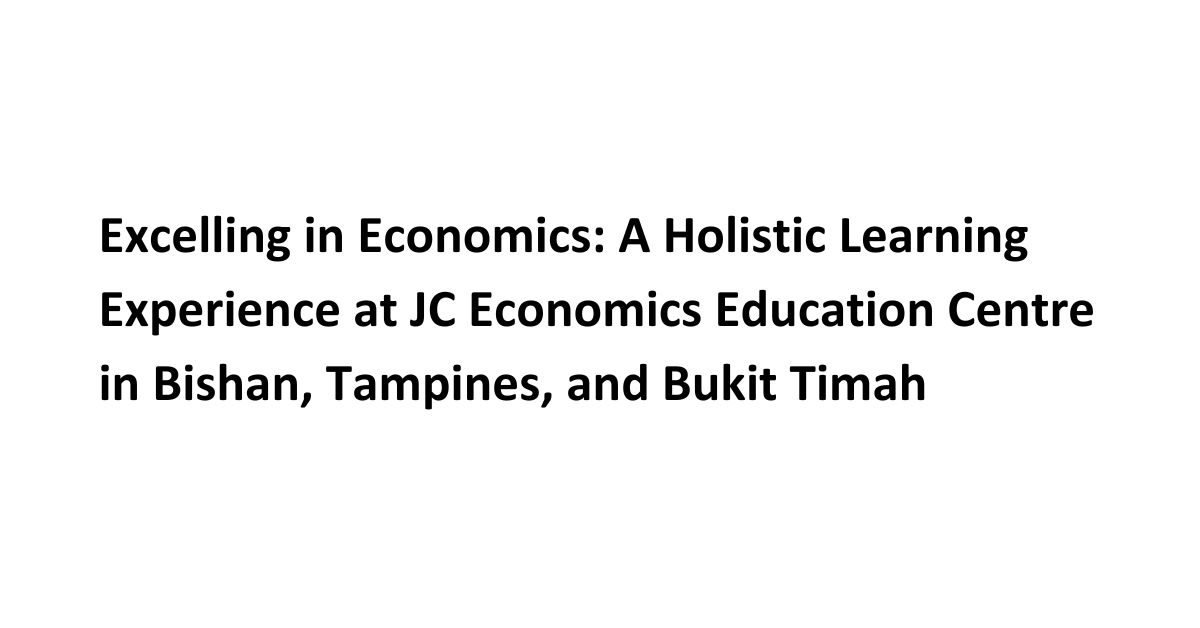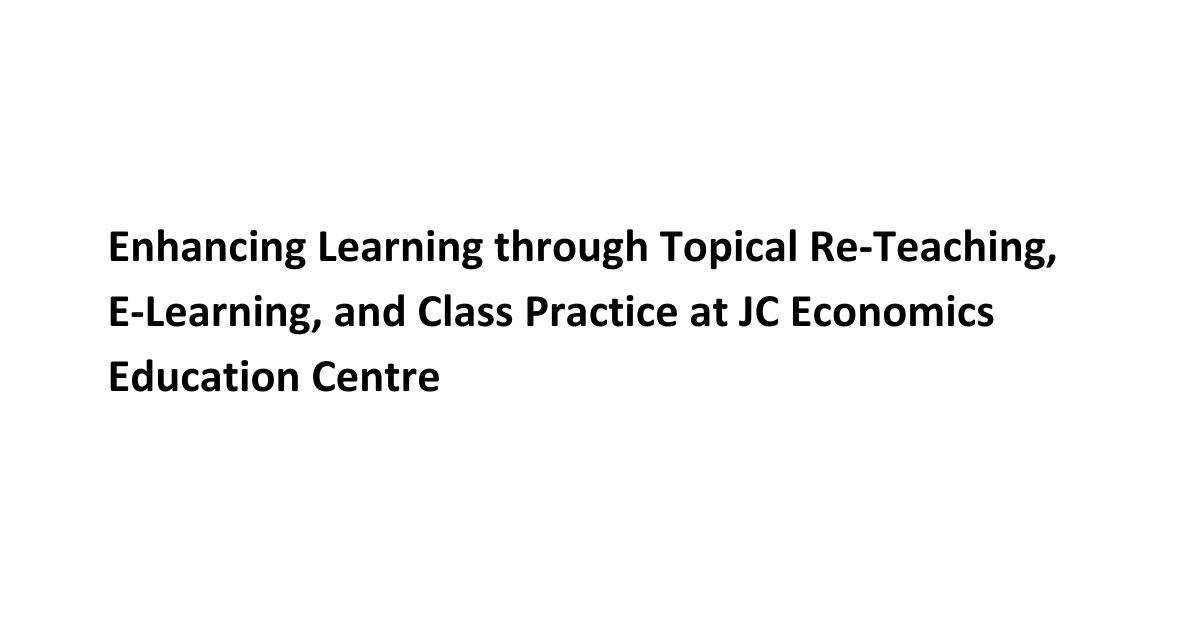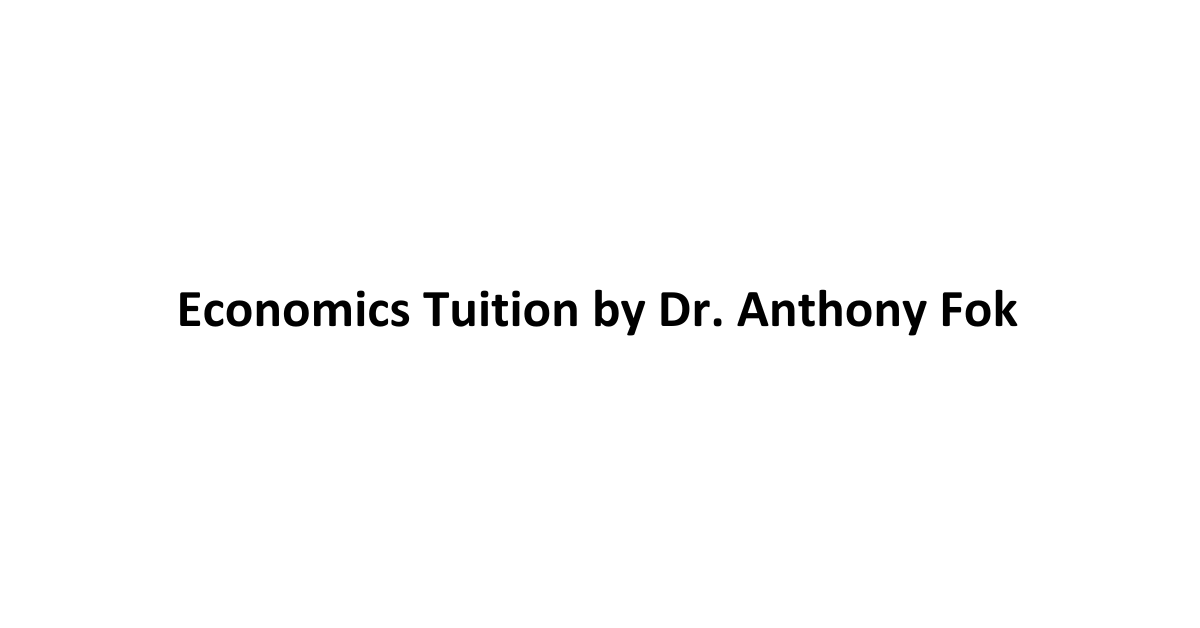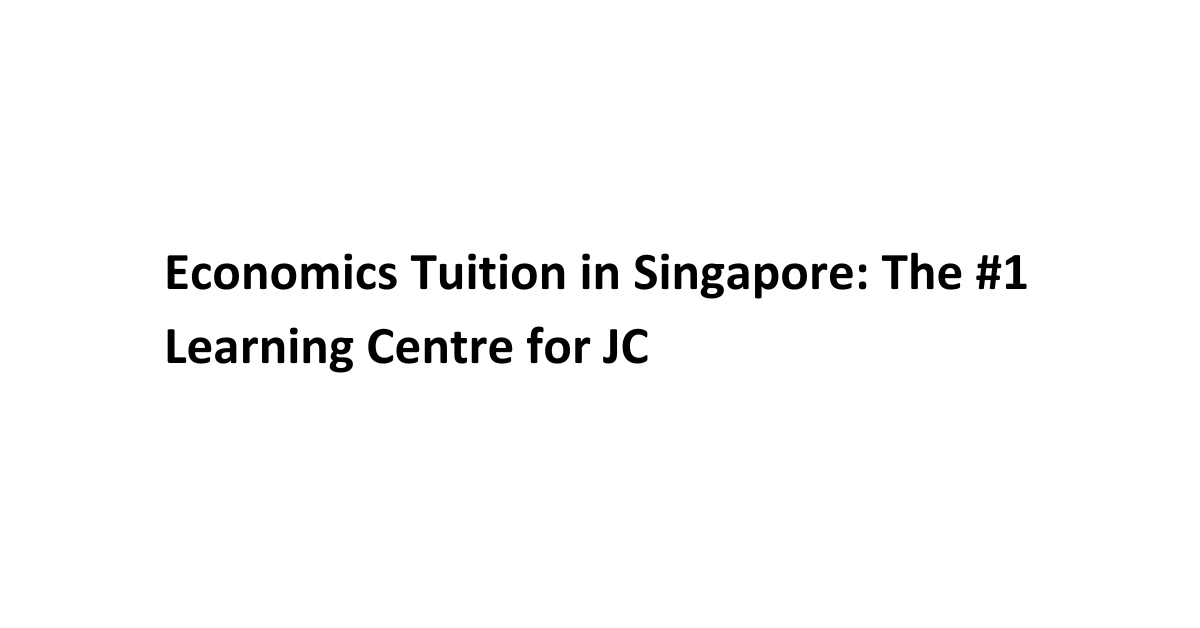19 Oct Excelling in Economics: A Holistic Learning Experience at JC Economics Education Centre in Bishan, Tampines, and Bukit Timah
In the realm of academia, the pursuit of excellence often comes with its fair share of challenges. This is particularly true in economics, a subject known for its complexity and multifaceted nature. To address these challenges, JC Economics Education Centre, with its locations in Bishan, Tampines, and Bukit Timah, takes an innovative and comprehensive approach under the adept guidance of Dr. Anthony Fok. This article explores the two cornerstones of their educational methodology, Topical Re-Teaching and E-Learning Content Teaching, alongside the significance of Class Practice.
JC Economics Education Centre: A Threefold Presence
Before delving into the core of our discussion, it’s essential to highlight the strategic locations of JC Economics Education Centre. With centers in Bishan, Tampines, and Bukit Timah, the institution aims to provide a wide-reaching and accessible education hub for students pursuing economics excellence. This threefold presence not only ensures geographical convenience but also emphasizes the commitment to quality education that transcends boundaries.
Topical Re-Teaching and E-Learning Content Teaching
At the heart of JC Economics Education Centre’s success lies a commitment to addressing potential knowledge gaps and fragmented ideas. Students often encounter difficulties in mastering specific chapters of their economics curriculum, and this is where Topical Re-Teaching and E-Learning Content Teaching come to the forefront.
The topical re-teaching classes, strategically scheduled during the revision phase, serve as a lifeline for students aiming to fortify their understanding of essential topics. Dr. Anthony Fok’s team has devised a curriculum that corresponds precisely to specific chapters, such as “International Trade”, “Inflation”, “Market Failure,” and “Cost of Production.” Through a varied array of teaching methodologies, including interactive discussions and real-world case studies, students can revisit challenging topics and gain a more comprehensive grasp of the subject matter.
Simultaneously, E-Learning lessons provide a dynamic platform to engage students. They emphasize the teaching of the core content needed for examinations while also expanding students’ critical skills. These lessons are delivered through online resources like interactive videos, quizzes, and real-world examples, making the content accessible, engaging, and interactive. Students can reinforce their understanding and hone their problem-solving capabilities through these online modules.
The combination of Topical Re-Teaching and E-Learning Content Teaching presents a holistic learning experience. Students not only revisit challenging topics and bridge their knowledge gaps but also develop essential skills that extend beyond the textbook. With this approach, they are better prepared to tackle complex questions in their examinations.
Class Practice: The Crucial Step to Excellence
Class Practice is the next vital component of JC Economics Education Centre’s educational framework. This phase is often underestimated by students, yet it plays an instrumental role in their ability to apply their knowledge effectively.
These practice sessions are meticulously designed to simulate real exam conditions, complete with timed questions and real-world scenarios. The practical approach is twofold: it tests students’ understanding of the subject and hones their problem-solving skills, time management, and examination readiness. It’s here that students can gain a deeper appreciation for the intricate aspects of economics.
In a recognition of the evolving educational landscape, JC Economics Education Centre has developed online practice sessions that complement traditional classroom instruction. These sessions encompass a range of topics, including essay outline practices and case study practices. The online platform offers students the flexibility to practice at their own pace, providing an additional layer of convenience and accessibility.
The significance of Class Practice cannot be overstated. It serves as a litmus test for students, allowing them to gauge their progress and identify areas where they may need further improvement. By engaging in these timed practice sessions, students can reduce anxiety and build confidence in their ability to excel in their economics examinations.
Conclusion
JC Economics Education Centre, with its three strategic locations in Bishan, Tampines, and Bukit Timah, has paved the way for a comprehensive approach to learning economics. The combination of Topical Re-Teaching, E-Learning Content Teaching, and Class Practice ensures that students receive a well-rounded and dynamic education.
By addressing knowledge gaps, enhancing critical skills, and simulating real exam conditions, JC Economics Education Centre sets students on a path to academic excellence. The holistic approach to education not only prepares them for examinations but also equips them with the skills and knowledge to excel in their future pursuits. With its threefold presence and unwavering commitment to quality education, JC Economics Education Centre is a beacon of hope for students seeking to master the intricate world of economics and reach their full potential.







